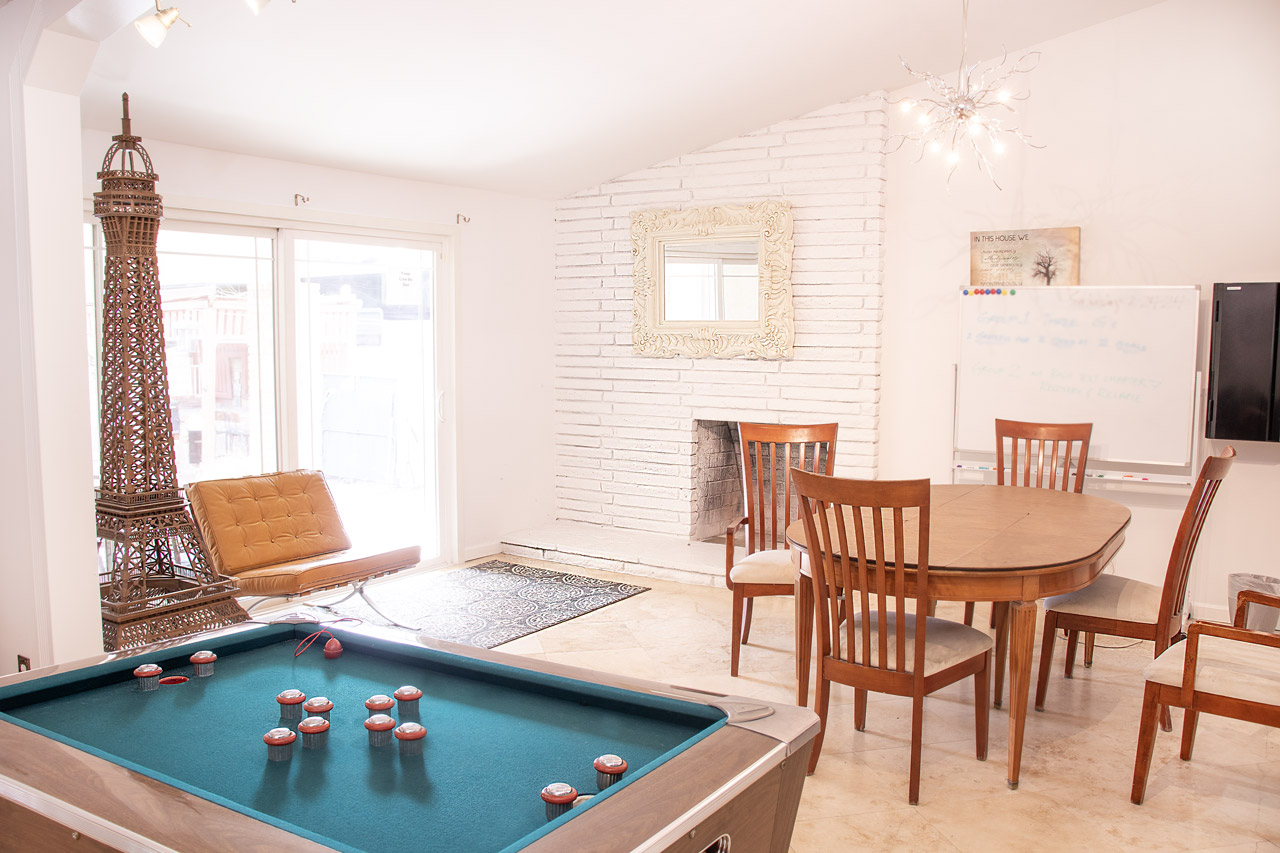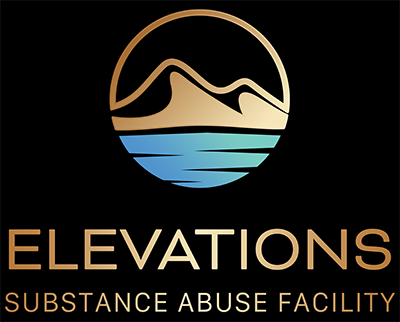Dual Diagnosis
There are many reasons people use drugs. They may take them recreationally when they are hanging out with friends. They may use them to relieve feelings of stress and anxiety. Or they may take them to treat underlying conditions such as emotional disorders like depression, OCD, and more.
When people take drugs to treat underlying mental conditions an addiction can begin to form. Treating that addiction takes more than just getting the system used to being clean of the drug. It requires addressing underlying conditions that are causing the addiction.
A treatment that addresses both addiction and its underlying causes is known as dual diagnosis treatment. At Elevations, we offer dual diagnosis in Los Angeles and can help you overcome your addiction.

Introduction to Dual Diagnosis Treatment
It is not uncommon for people with addiction issues to suffer from mental disorders. Individuals dealing with these disorders may not want to reach out for help because they are afraid of what people might think. Others may not want to spend the money and disrupt their lives with therapy. Some may think their problems aren’t that bad.
When people don’t get help for their problems, they often self-medicate. They use drugs and alcohol to calm their symptoms. Although the illicit substances they are using may provide temporary relief, they will take them on a downward spiral.
Drug and alcohol use can also cause mental health issues or make them worse. They affect the chemicals in the brain making people more susceptible to emotional issues that may be pre-existing or not.
In any case, by the time a person reaches out for help, they will require a treatment that addresses both the addiction and the mental disorder that’s causing it.
There are many types of therapy that can be used in dual diagnosis programs Los Angeles, but Cognitive Behavioral Therapy (CBT) is one of the most common.
CBT works on the theory that our negative behavior comes from how we perceive the environment around us and not the environment itself. It helps patients better understand their thought processes, so they begin to see patterns of irrationality. Once this becomes clear, they can adopt a more optimistic attitude and they will change behavioral patterns accordingly.
Dialectical Behavioral Therapy (DBT) may also be integrated in dual diagnosis treatment. This is a form of CBT. It focuses on motivating the patient so they can better manage their own lives. The therapist provides validation and problem-solving strategies to teach the client to change their behavior. They will only intervene if it’s absolutely necessary.
Other types of therapy may be integrated into the dual diagnosis treatment including:
- Contingency Management rewards patients for making positive changes in their lives.
- Rational Emotive Behavior Therapy helps people identify and change negative thought patterns.
- Motivational Interviewing motivates patients to want to get better.
- Family Therapy helps the entire family learn how to deal with addiction and come up with the best ways of supporting a loved one dealing with dependency issues.
- 12 Step Programs: 12 step programs are a kind of group therapy based on the theory that there are 12 steps necessary for recovery. They are spiritual in nature.
- Eye Movement Desensitization and Reprocessing (EMDR): EMDR is an eye movement therapy that helps patients process traumatic memories and replaces negative images with positive beliefs.
- Matrix Model: The matrix model combines CBT, family therapy, and group therapy to prevent relapse.
- Person-Centered Therapy: Person-centered therapy focuses on treating the individual rather than the addiction. It works to minimize feelings of shame and rejection that may hold a person back from healing.
- Medically Assisted Treatment (MAT): There are various medications that may be integrated into dual diagnosis treatment. This includes drugs that reduce withdrawal symptoms, drugs that make illicit substances seem less pleasurable to stop the cycle of abuse, and antidepressant and anti-anxiety medications that treat emotional disorders.
What Sets Us Apart
Support & Care
We believe the road to recovery begins and ends with a caring and empathic support team.
Experience
Our staff is all highly skilled and trained in the up-to-date techniques and recovery procedures.
Passion For Results
We take pride in what we do and in helping our clients find long-lasting relief and recovery.
Why is Dual Diagnosis Needed?
To determine why dual diagnosis treatment is needed, let’s look at a scenario where dual diagnosis is not integrated into treatment.
Say a patient uses illicit drugs to self-medicate feelings of depression. They go through rehab, and they may feel better being in a soothing environment and being treated with healthy food and medications.
But if the depression is not treated at its source, as soon as they check out the clinic, their emotional disorder symptoms will return. Without immediate support, they will go back to using drugs and alcohol.
A dual diagnosis addresses addiction at its source. In this scenario, it will teach the patient healthy ways to deal with depression, so they won’t go back to doing drugs. It treats emotional disorders getting to the root of the addiction to minimize the chance of unhealthy behavior.
What To Expect From a Dual Diagnosis Treatment Center in Los Angeles

A dual diagnosis treatment center Los Angeles will treat patients in different stages.
The first stage of treatment is detox. This involves the patient allowing their body to get clean of toxic substances. During this phase, patients experience withdrawal symptoms that make them want to go back to using.
The medical staff at the treatment center will administer medications to relieve symptoms and provide a soothing atmosphere to keep the patient as comfortable as possible during this difficult phase of recovery. They will supervise them to see to it that relapse doesn’t occur.
After detox is complete, the patient will go through dual diagnosis treatment. The therapist will analyze the patient to determine any emotional disorders that may exist and find a treatment plan that’s best suited to their needs. Then they will work with them to find the optimal way to reduce the addiction and manage symptoms that cause addiction.
In addition to attending therapy sessions, patients will also have time for relaxation and social activities. They may be taken out for enjoyable outings to experience the world around them.
Once the patient graduates from the rehab program, they will go back to their everyday lives. This is a crucial time in recovery as many patients go back to using when they are exposed to the stresses that they used to deal with. They may also see the people they used with and the places they used at, and they may be tempted to go back to their old ways.
The dual diagnosis treatment center will continue to provide aftercare giving patients the support they need to stay strong and resist the temptation to go back to doing drugs.
Completely Heal With Dual Diagnosis Treatment Program in Los Angeles

If you are looking to overcome your addiction once and for all, Elevations can help. Here’s what you can expect when you check into our Calabasas mental health center.
We start off with an assisted detox. We provide a soothing atmosphere for patients’ recovery. We administer medications as needed and oversee residents ensure relapse doesn’t occur.
After detox is complete, patients move on to our dual diagnosis program. We analyze each patient to determine what is contributing to their addiction. Then we figure out a customized treatment that works best for them.
All healing takes place in our luxury facility in the upscale Los Angeles neighborhood of Encino. We provide just six beds ensuring the utmost privacy.
Our staff-to-patient ratio is 2:1 so our patients get the care they need when they need it. We offer chef-prepared meals and weekly outings so patients can take in the sights and sounds of the city.
Addiction is a terrible disease. Don’t let it rob you of the precious moments of your life.
Reach out to Elevations today. We will get you on a path to happier and healthier living. We will help you enjoy the high-quality life you deserve.
